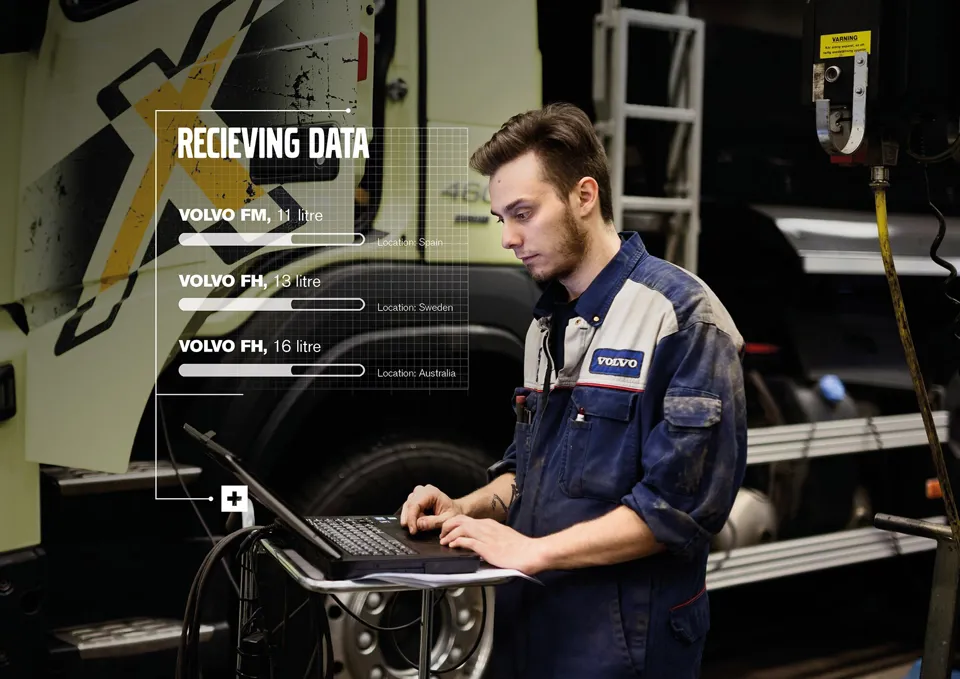A survey conducted by Volvo Trucks reveals that incidents of unplanned downtime can be cut by 80 per cent.
In the long term, Volvo’s aim is that unscheduled downtime should become a thing of the past, thanks to the continued growth of online connectivity in trucks, a development that creates entirely new scope for working with preventive maintenance.
Unplanned downtime is perhaps one of the most problematic issues that can affect a haulage operator. Apart from the inconvenience for the driver, it creates extra costs for repairs, lost revenue and, in worst-case scenarios, damage to a customer’s reputation.
“Since much of the transport industry operates on tight margins, any unplanned downtime can hit a haulage company hard. We therefore have to be better at understanding why these unscheduled incidents happen, then help both customers and drivers increase their vehicle uptime and therefore their profitability,” said Hayder Wokil, director quality and uptime, Volvo Trucks.
In order to increase our knowledge on how to help haulage companies boost their uptime, Volvo Trucks recently conducted a comprehensive survey based on real-life user data from 3,500 Volvo trucks gathered over a five-year period. Using this data, the company conducted advanced simulations and generated a variety of possible service situations to analyse how, why and when trucks suffer from unexpected downtime. The aim was to find out how this can be avoided.
“The study clearly showed that by being able to monitor the truck’s usage and the current status of the vehicle’s various key components, it is possible to plan maintenance better. We think we can reduce the amount of unplanned downtime by around 80 per cent if the truck is serviced in time and in response to actual needs,” explained Wokil.
“For instance, a service technician can remotely monitor exactly how the truck is being used in real time, schedule maintenance well in advance before something breaks down, or order replacement parts in advance. What’s more, a scheduled service can also be postponed if the workshop technician can see that the truck’s various components are subject to less wear than expected, thereby saving time for both the haulage operator and the driver.”
Although Volvo Trucks has made considerable progress in this area, Hayder Wokil feels that the development of the use of truck connectivity allied to preventive maintenance is still in its infancy.
“We see considerable potential in this area and see that connected vehicles are the route to zero unplanned downtime in the future,” concluded Wokil.

















Login to comment
Comments
No comments have been made yet.